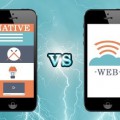Common Technology Terms For Business Software Shoppers
— June 1, 2020
Understanding Technology Terms in Business Software
Grasping key technological terms is critical when selecting software for your business. It enhances your ability to engage in meaningful discussions and demonstrates your credibility in decision-making processes. Familiarity with these terms empowers you to ask insightful questions, enabling better evaluation of software products.
For business owners, staying informed about technology is not just about understanding modern trends like autonomous vehicles or smart homes. It’s also about acquiring practical knowledge for making informed decisions on software and hardware investments. By maintaining a glossary of commonly used terms, business owners and decision-makers can simplify the process of selecting the right solutions. Over time, what initially seemed like overwhelming jargon will become second nature, streamlining your interactions with software providers.
Common Technology Terminology: A Guide for Business Professionals
A/B Testing
A/B testing involves comparing two versions of digital content to determine which performs better. Businesses use this method to analyze engagement, refining strategies to optimize advertising and allocate resources effectively. For instance, an enterprise might test two email campaign layouts to identify which generates higher click-through rates. In doing so, they can fine-tune their content and maximize returns on advertising investments.
API (Application Programming Interface)
An API acts as a bridge that connects different software applications, enabling them to communicate seamlessly. APIs are integral to software integration, allowing tools like customer management systems and marketing platforms to function as a cohesive unit. Many modern software solutions also provide customizable APIs, giving businesses the flexibility to adapt systems to specific workflows. For example, integrating an e-commerce platform with a payment gateway often relies on API functionality.
BI (Business Intelligence)
Business Intelligence refers to data-driven analysis focused on identifying trends, forecasting outcomes, and making informed decisions. BI tools are integral to many software systems, offering capabilities like real-time analytics, visual dashboards, and predictive modeling. By employing BI tools, companies can streamline operations, reduce inefficiencies, and maintain competitiveness in fast-paced markets. This analytical approach is particularly valuable for businesses that rely on outsourcing partners for data management and reporting services.
Click-to-Call
Click-to-call functionality simplifies communication by allowing users to initiate phone calls directly from a system. This is a vital feature for employees in sales or customer service roles who need to engage with clients quickly and efficiently. By integrating click-to-call capabilities, businesses can improve response times, enhancing customer satisfaction and retention.
Cloud Hosting
Cloud hosting stores data on virtual servers accessed via the internet. This scalable and secure solution is ideal for businesses seeking flexibility and cost efficiency. Companies often use cloud hosting services to avoid maintaining physical servers, instead relying on third-party providers to manage resources. Accessing cloud-stored data is seamless, as interfaces are typically user-friendly and integrated with existing business tools. Cloud hosting is a common feature in modern software ecosystems, especially in the SaaS model.
CMS (Content Management System)
A CMS simplifies the management and publication of digital content. It provides tools for organizing text, images, and other media into cohesive, searchable structures. WordPress is a well-known CMS, but many enterprise software platforms also include CMS components tailored for specific business needs. For example, companies focusing on digital marketing may require CMS systems with advanced analytics and content optimization tools to ensure effectiveness across web and mobile platforms.
CRM (Customer Relationship Management)
CRM software helps manage customer interactions, streamline sales, and enhance relationships. Some CRMs are standalone products, while others are integrated into larger business platforms. CRMs provide features like contact databases, activity tracking, and automated follow-ups.
Dashboard
A dashboard offers a snapshot of real-time data, acting as the central hub of any software system. Dashboards display key metrics, trends, and analytics, helping users make informed decisions at a glance. The effectiveness of a dashboard lies in its design, which must be intuitive and visually appealing to ensure accessibility.
DNS (Domain Name Service)
The DNS translates human-readable domain names into numerical IP addresses, enabling browsers to connect to websites. This system is foundational to the internet, ensuring seamless navigation for users. For businesses managing their online presence, understanding DNS is essential for maintaining secure, fast, and reliable connections.
Email Marketing
Email marketing involves sending targeted campaigns to promote products or services. Effective campaigns feature engaging content like visuals and videos, encouraging recipients to act. Email marketing platforms often include analytics tools, enabling businesses to track open rates, click-through rates, and conversions. This strategy is a staple for businesses aiming to connect with customers cost-effectively.
Market Automation
Marketing automation refers to tools and platforms that streamline campaigns by managing tasks like email distribution, lead generation, and analytics. These tools integrate seamlessly with CRMs, enabling businesses to engage prospects efficiently. Outsourcing partners, including those specializing in SaaS development, often enhance marketing platforms with automation features for optimized performance.
MVP (Minimum Viable Product)
An MVP represents the simplest version of a product that delivers value to users while gathering feedback for future iterations. This approach minimizes resource investment while ensuring a product meets market needs. Businesses often collaborate with outsourcing providers for MVP development, benefiting from expertise in rapid prototyping and iterative improvements.
Organic Content
Organic content refers to materials discovered through unpaid means, such as search engine results or social media shares. This contrasts with paid advertising, relying on relevance and quality to attract audiences. Companies focusing on organic content prioritize SEO strategies and user engagement to grow their online visibility.
POS (Point of Sale)
A POS system processes sales and tracks inventory, combining hardware and software to simplify transactions. Modern POS systems include features like integrated payment solutions and inventory management, making them essential for retail businesses.
SaaS (Software as a Service)
SaaS platforms deliver software over the internet on a subscription basis. These services eliminate the need for businesses to manage hardware or install software locally. SaaS adoption is prevalent due to its flexibility, cost-effectiveness, and scalability. Businesses working with software outsourcing agencies often leverage SaaS solutions tailored to their unique needs, particularly for mobile and web platforms.
SDK (Software Development Kit)
An SDK provides tools and libraries for building software applications on specific platforms. For example, mobile app developers may use an SDK to integrate location services, payment processing, or social media sharing into apps. Businesses seeking tailored solutions often rely on SDKs to add functionality to existing platforms or create unique applications.
SEO (Search Engine Optimization)
SEO enhances website visibility by improving search rankings. Techniques include optimizing keywords, creating high-quality content, and building backlinks. Effective SEO strategies drive organic traffic, making it easier for potential customers to discover your business.
Server Hosting
Server hosting involves outsourcing the management of hardware and storage to external providers. This solution is ideal for businesses seeking cost savings and reliability without managing physical servers. Remote hosting ensures accessibility and scalability, essential for growing businesses.
VPN (Virtual Private Network)
A VPN secures internet connections by creating encrypted channels, protecting sensitive data. Businesses use VPNs to ensure secure access for remote employees and safeguard internal systems. VPNs are critical for organizations that manage confidential information across multiple locations.
Web Apps
Web apps are websites designed to function like mobile apps, offering intuitive layouts and easy navigation. These applications are increasingly popular due to their compatibility across devices and operating systems.
White Label Solutions
White-label products allow businesses to rebrand tools and platforms as their own. This is common in website development and app-building software, where companies can create customized outputs without revealing the original provider. This flexibility is particularly appealing to businesses seeking to present a cohesive brand image to clients.
Conclusion
Understanding technology terms is a vital step for business software shoppers. Knowledge of these concepts empowers you to evaluate solutions critically and communicate effectively with providers. Whether partnering with an outsourcing agency like S3Corp in Vietnam or navigating local options, being informed helps ensure the success of your technology investments.




